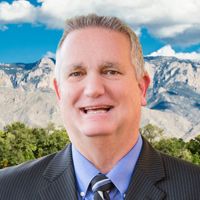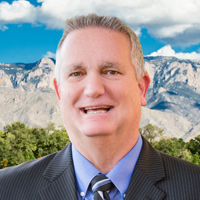How to Find a Financial Adviser Who's a Good Fit for You
Especially when you're approaching or in retirement, you want to be sure you're working with the right professionals; asking them these five questions should help.

Profit and prosper with the best of Kiplinger's advice on investing, taxes, retirement, personal finance and much more. Delivered daily. Enter your email in the box and click Sign Me Up.
You are now subscribed
Your newsletter sign-up was successful
Want to add more newsletters?

Delivered daily
Kiplinger Today
Profit and prosper with the best of Kiplinger's advice on investing, taxes, retirement, personal finance and much more delivered daily. Smart money moves start here.

Sent five days a week
Kiplinger A Step Ahead
Get practical help to make better financial decisions in your everyday life, from spending to savings on top deals.

Delivered daily
Kiplinger Closing Bell
Get today's biggest financial and investing headlines delivered to your inbox every day the U.S. stock market is open.

Sent twice a week
Kiplinger Adviser Intel
Financial pros across the country share best practices and fresh tactics to preserve and grow your wealth.

Delivered weekly
Kiplinger Tax Tips
Trim your federal and state tax bills with practical tax-planning and tax-cutting strategies.

Sent twice a week
Kiplinger Retirement Tips
Your twice-a-week guide to planning and enjoying a financially secure and richly rewarding retirement

Sent bimonthly.
Kiplinger Adviser Angle
Insights for advisers, wealth managers and other financial professionals.

Sent twice a week
Kiplinger Investing Weekly
Your twice-a-week roundup of promising stocks, funds, companies and industries you should consider, ones you should avoid, and why.

Sent weekly for six weeks
Kiplinger Invest for Retirement
Your step-by-step six-part series on how to invest for retirement, from devising a successful strategy to exactly which investments to choose.
When people think about how their money is managed, they usually put their focus on the numbers. There's a tendency to compare your investments to how friends and family are doing, and also to the broader market. If you're keeping up, you're satisfied. If you're doing better, you're thrilled.
But finding a financial adviser who's a good fit—who knows where you are in life and how your needs have changed and will continue to change—is also important. As you're nearing retirement, it's especially true that you'll benefit from finding someone with whom you feel comfortable both personally and professionally.
So what should you be looking for if you're considering hiring an adviser for the first time, or if you're thinking about changing advisers? Here are five questions worth asking prospective advisers:
From just $107.88 $24.99 for Kiplinger Personal Finance
Become a smarter, better informed investor. Subscribe from just $107.88 $24.99, plus get up to 4 Special Issues

Sign up for Kiplinger’s Free Newsletters
Profit and prosper with the best of expert advice on investing, taxes, retirement, personal finance and more - straight to your e-mail.
Profit and prosper with the best of expert advice - straight to your e-mail.
1. Are you a fiduciary?
A fiduciary has a legal duty to place the client's interest ahead of his or her own and disclose any potential conflicts of interest when discussing products. Not all are, so you should ask. And while you're at it, inquire about any other licenses and credentials that may apply to the services being provided.
2. What kind of clients do you work with?
Most people have the same adviser for several years, and it's been that person's job to try to grow their money. But if you're retired or close to retiring, it's time to look for what I call a "preservation adviser," someone who knows when it's time to shift gears.
Winning the retirement game is more about not losing than it is about hitting homeruns. For example, my goal for most clients is a 5% to 6% yield per year—that's kind of the "hot spot." Sometimes I'll get a person who wants to try to hit a homerun and get a 10% to 12% return, and I'll just say, "We're not the right fit, then." The client and the adviser need to be able to communicate and think the same way.
3. How much contact will there be?
A lot of people say their advisers never call them back and don't touch base with them on a regular basis. People want to be reassured. You need to know you can get in touch with your financial adviser when you need him or her.
When you're younger, you can kind of hand it all over; you get your quarterly statements, and you pretty much leave things alone. But more than ever before, and especially in retirement, the adviser needs to be available to the client. He or she should always return your calls and should meet with you in person at least a couple of times of year, at a minimum. If you're going to manage someone's money, you need to be there to help them, and be there in front of them.
4. What's your approach to investing?
Since investing involves risk, including loss of principal, you would want to work with an adviser who will actively manage your account. Most people want to find out sooner rather than later if they need to make adjustments to their portfolio. Your adviser should encourage you to pay attention, and if you have questions, to come in and discuss what's going on. That doesn't change in retirement. It's the time to be very aware of what's going on with your money.
5. How's our fit?
I think it means a lot to like who you work with, so you look forward to those meetings and phone calls.
That doesn't always happen right away. Often we'll meet with clients or potential clients, and we'll have some ideas, and they're not ready to flip the switch. When they do, it all lights up, and everything becomes clear. But it takes a little bit of effort to get that power working for you. You've got to have that energy and trust with your adviser to get the electricity going.
Philip Gordley is an investment Adviser Representative, insurance professional and the president and founder of Core Financial. He has more than 30 years of experience in the financial services industry.
Investment advisory services offered through AE Wealth Management, LLC.
Kim Franke-Folstad contributed to this article.
Profit and prosper with the best of Kiplinger's advice on investing, taxes, retirement, personal finance and much more. Delivered daily. Enter your email in the box and click Sign Me Up.

Philip Gordley is an independent financial adviser in Albuquerque, N.M. The president and founder of Core Financial, he has more than 35 years of experience in the insurance and investment industry and has a bachelor's degree from Quincy College. Phil has been married for 26 years to his wife, Zora, and they have two teenage daughters.